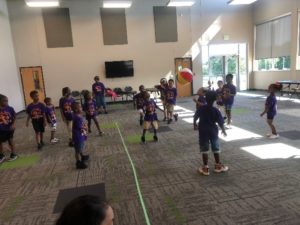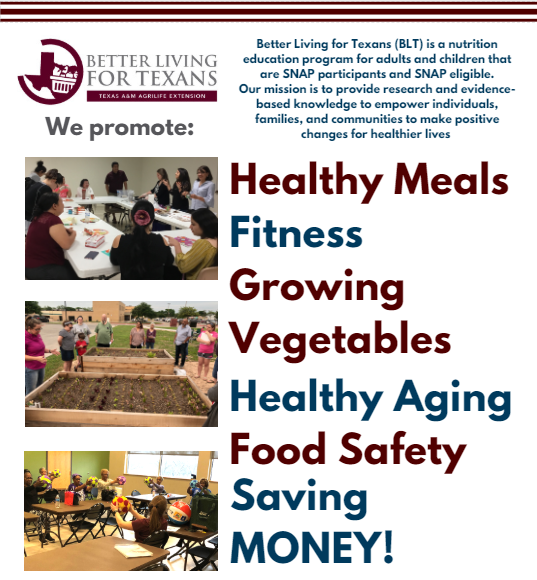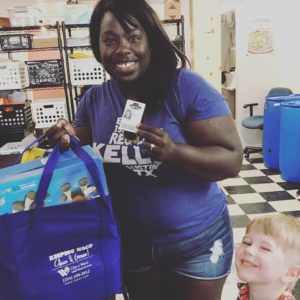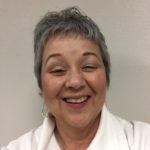Press release
Mentor Waco Coalition, a Prosper Waco working group, has worked diligently to pair the young minds of Waco with community leaders who want to see them succeed. The coalition promotes awareness for current mentoring opportunities in Waco and brings leaders together to educate future mentors.
On October 26, 2019 at 9:00 to 11:30 a.m., the Mentor Waco Coalition will continue to advance that goal with a morning of training for any current or potential mentors in the Waco community who would like to learn more about the difficulties Waco students face and how to help them overcome those struggles. The training will be held at Columbus Avenue Baptist Church, and there is no cost to attend. Pastries and coffee will be provided.
Brittany Fitz, director of Research and Evaluation at Prosper Waco, has attended multiple training sessions and said she believes in the value of these opportunities. “What’s really great about the Mentor Coalition meetings in general is it brings together people that are doing similar work to really make sure that they are common in the best practices,” Fitz said. “So, the upcoming training they have is to address the need that they saw across all organizations.”
With this upcoming mentor training opportunity, Waco leaders from different organizations will discuss their own efforts and the nuances and lessons from their experiences. Training participants will get to hear from professionals who understand the ins and outs of helping the Waco community and ask questions to further their own understanding of the topics offered. Session one choices include: “Behavior/Redirection” led by GL Wiley Elementary Principal Craig Cox, GL Wiley Middle School Assistant Principal Melody Herring, and founder and executive director of the organization Size of a Man Darryl Thomas; or “Bullying/Self Esteem” led by STARRY Team Supervisor Leah Gorham. Session two choices include: “Social Media Tips/Awareness” led by Dr. Soo Battle, a pediatrician and founder of Camp Careful, and Chelsa Ressetar, the director of advancement at Vanguard and a speaker on digital citizenship; or “Human/Sex Trafficking” led by a representative from Unbound.
“I think one of the biggest draws for these presentations is the fact that we not only have great experts in each of the discussion areas, but we are intentionally keeping a large portion of each session dedicated to Q&A,” said the Mentor Waco Coalition Chair, Travis Cheatham. “Any attendee has the ability to connect with and ask direct questions of the presenters. I think all four of these sessions are areas that anyone, including the heads of mentoring organizations, could gain additional insight and experience from.”
This working group embodies Prosper Waco’s core value of collective impact, and with this training, more connections can be made to create a stronger Waco. To register, visit https://www.eventbrite.com/e/mentor-waco-training-conference-tickets-70686642651. Columbus Avenue Baptist Church is located at 1300 Columbus Avenue, Waco, TX 76701. For further information, please contact Travis Cheatham at [email protected].

By Kay Schulz
When I approach Human Resource Managers that are not familiar with our Employer Resource Network, their typical response is that they already have an EAP provider and are not considering any others. My usual answer is that we don’t replace the EAP provider, we enhance it. Well, what does that mean?
I did some fairly in-depth research on EAP’s and what I learned was that they are all very different! Different in who they serve, what they do and how they do it. There are Managerial, Organizational, Administrative, Individual and Combination EAP’s. Many EAP’s are part of large health insurance companies, some are independent and some are owned and operated by the employer as an “Internal EAP.” Employees often don’t utilize the company EAP because they don’t know just exactly who they are talking with regarding their most private issues, since the interaction is typically by phone or computer.

So how does our Waco Employer Resource Network (WERN) service compare to most EAP’s? The WERN program is not focused on wellness, mental, or behavioral health, but rather on “life circumstances.” The WERN Success Coach is not a psychologist or licensed social worker. WERN does not have a website with generic advice on common problems, nor do we offer a toll-free help line with 24-hour access!
What WERN does offer is navigation to local social services, public assistance and private agencies delivered by one-on-one, face-to-face, confidential meetings with employees. The Success Coach has the connections and service partners in place to assist workers in finding solutions for the barriers that can interfere with employment. This includes the basic needs of life: feeding and housing a family, paying utilities, transportation, work clothing and other provisions. Satisfying the basic needs will serve as a foundation for workers so they can concentrate on their jobs and possibly achieve upward growth.

Katy Schulz is the WERN Liaison. She connects employers with Success Coach services that support their workers to succeed at work and in life. In her spare time she volunteers with TOSA to grow the number of registered organ and tissue donors in the area and to spread the word that the Gift of Life is a true miracle for us all!
The Act Locally Waco blog publishes posts with a connection to these aspirations for Waco. If you are interested in writing for the Act Locally Waco Blog, please email [email protected] for more information.
Top 10 “Most Opened” Blog Posts of 2019: # 5
By Ellie Triplett
If you avoid gluten for any reason, eating out can be a challenge. If you’ve been doing it for any amount of time, you’re probably an old pro at the basics of avoidance when it comes to regular menus. But what about when you want something as classic as a cheeseburger? Where do you go for your macaroni and cheese cravings? Where can you find gluten-free pancakes? Or, the golden chalice of gluten-free eating, where can you go for pastries? Never fear, my friends, you are in luck. I am here to tell you that you are living in a town with a growing culinary culture, with restaurants that provide an impressive array of allergen friendly dining options. What follows is a very basic, non-comprehensive list of where to find your fill of sans-gluten treats in good ol’ Wacotown.
It seems logical to start with breakfast. If you are looking for pancakes, Café Cappuccino (with three locations at 100 N. 6th St., 1101 Richland Dr., and 903 N. Hewitt Dr.) is known for its amazing, plate sized pancakes, and now they come in gluten-free! I have personally ordered and enjoyed them.
Uptown features wonderful vegan and gluten- free waffles at Luna Juice Bar (1516 Austin Ave.). In carrot, matcha, and strawberry, the waffles are made with oat flour, gluten-free flour, or coconut flour and topped with coconut whipped cream, and are DELICIOUS. Pair them with a smoothie, or a cold pressed juice and you’ve got a perfect breakfast. Luna Juice also has a full menu of delicious salads, soups, and wraps, if you need a quick lunch later in the day.
Down the street at Harvest on 25th (112 N. 25th St.) you can continue your breakfasting or slide right into brunch with gluten free muffins, pancakes, or avocado toast. They offer ways to make their entire menu gluten-free and also offer gluten- free pizzas.
Since we’ve moved on to lunch, and specifically pizza, it is worth mentioning that Poppa Rollos (a long time local favorite at 703 N. Valley Mills) offers a good gluten-free version, and both Slow Rise Slice House (7608 Woodway Dr.), and 900 Degrees Pizzeria (315 S. University Parks) have cauliflower crusts which are keto friendly as well as being gluten-free.
If you’re craving a hamburger, look no further than Tom’s Burgers (6818 Sanger Ave.) It is a mom and pop burger joint that has just recently been brought to my attention for their gluten-free buns.
A newer option with gluten-free buns and bread is Revival East Side Eatery (704 Elm Ave.). They have a full menu, including soups and salads, so you’re sure to find something for everyone.
If you’re looking for the kings of comfort food (in my opinion), macaroni and cheese and grilled cheese sandwiches, look no further than The Mac House (3428 Franklin Ave.). Their artisan sandwiches and macaroni creations are amazing, and worth every penny and every minute you’ll spend waiting (it’s a bit, y’all, but worth it!).
Which leads me to my favorite way to splurge on gluten-free food; the pastries. Fabled Bookshop downtown (215 S. 4th St.) has gluten free lemon poppy seed cake as a part of their newly opened café, alongside literary themed drinks and other snacks. However, Baked Bliss (1114 N. 15th St.) is truly the sweet spot for sweets (see what I did there?) with cinnamon rolls, cranberry orange scones, brownies, chocolate chip cookies, blueberry muffins, and bacon cheddar scones (if you’re feeling the savory side of things) all offered gluten-free daily. You can pre order their gluten-free bread, which they bake on Wednesdays in a completely gluten-free kitchen, on Tuesday mornings. They also have gluten-free cakes, cupcakes, lemon shortbread, and pecan shortbread cookies, all of which can be made ahead of time for special events.
Phew! It’s a lot! A couple of things to note as we wrap up. Firstly, I am not a food blogger, or really any type of blogger. In many of these cases, I have eaten and enjoyed the food, but this is not true across the board. As a result, I did not attempt to describe in too much detail the experience of eating the food, so as to be fair. Secondly, this is by no means a comprehensive list. If your restaurant, or your favorite restaurant was left off the list, it is in no way meant as a slight. I polled my friends, asked for help, and sent out a few cursory messages asking for clarification on menu items. The result is this post. If I made a grievous error, leave us a comment! Share your knowledge! Thirdly, it is important to keep in mind that there are no certified gluten-free kitchens on this list. Most things will experience some level of cross contamination, and you are, as always, advised to check with your servers and express your level of allergy, and make an informed decision for yourself.
Happy (and safe!) eating, friends!
A couple of other resources…
- Gluten Free Waco website and Facebook page.
- “Find me Gluten Free” app

Ellie Triplett is a book lover, weaver, former bee keeper, and enneagram four. She lives and works (and eats) in Waco alongside her spouse and their three children.
The Act Locally Waco blog publishes posts with a connection to these aspirations for Waco. If you are interested in writing for the Act Locally Waco Blog, please email [email protected] for more information.
By Sion Firew

The Waco Employer Resource Network (WERN) incorporates community collaboration with uniquely tailored case-management plans to help Waco employees retain their jobs. The WERN initiatives originated from the Prosper Waco working group of the same name and have developed into a stream of connection between employers, employees and local resources. With the help of Goodwill Industries and Caritas, WERN has facilitated crucial communication between the participating Waco employers and their employees while raising employee awareness of local opportunities available to help navigate personal obstacles to successful long-term employment.
The average retention rate for the 16 employers that are active in WERN is currently 61 percent. According to Tiffany Gallegos, the development director of Goodwill in Waco, the employment turnover rate in previous years has been as high as 70 percent.
“We are the first Employer Resource Network in Texas, and that is something I am really proud of,” Gallegos said. “I think this shows how our city is dedicated to moving the needle on keeping people employed and successful in their jobs.”
To have the retention rate increase from 30 percent to 61 percent over the past few years is incredible to say the least, but what factors in particular caused such a shift?
There are numerous WERN programs that are beneficial to those in the workforce, but the addition of success coaches has caused a major shift in the way employers and employees interact and understand one another. Success coaches identify the personal burdens with which an employee might be struggling and find the resources that will allow the employee to keep their job by successfully managing the obstacles they face. Success coaches most commonly aid with accessing resources related to food, utilities, family support, education and financial support.
Caritas success coach Cletha Tyler explained, “We’ve made a difference in many people’s lives. The success coach and the solutions found help them because they fall through the cracks of a lot of other resource options.”
Though many companies have employee assistance programs that provide support, they may not take the hands-on approach of WERN success coaches. Thanks to the WERN success coaches’ ability to craft case-specific solutions and guidance on overcoming personal obstacles to employment, extra steps can be taken to ensure job security. Tyler described how employees who may not have access to the help they need, including food stamps and government housing, can be at risk of losing their job or missing out on promotions. Success coaches step in and create a bridge of understanding in which employers and employees can work together to create compromise and meet the needs of both sides.
“One lady this summer was going to lose her job because she didn’t have anyone to keep her 10-year-old son,” Tyler said. “The employer called me that day and said ‘Look, if she misses work tomorrow, she’s getting fired.’ So, I went out there and I contacted the Waco Boys and Girls Club, and I was able to get her into the summer program. It just so happened that it was around the corner from her house so she could drop her son off
[before]
work.”
This situation with a woman and her son is only one of many in which people feel stuck in their circumstances because they are not aware of or do not have access to the opportunities for assistance around them. Tyler explained that success coaches build a detailed list of resources for these Waco employees. They do not simply tell people to call random 1-800 numbers, but instead refer their clients to local community resources. This local focus is vital to creating the community connections needed for positive WERN results.
Tyler and her colleagues exemplify the resounding theme of community cooperation and individualized case management that WERN upholds. WERN, Goodwill and Caritas have been working to see employees have the opportunity to keep their jobs and advance in their chosen fields. The improved retention rate of employees dramatically demonstrates the effectiveness of WERN’s hands-on, personal approach to helping the employees of Waco. While WERN has done a substantial amount to decrease the turn-over rate, with the help of the success coaches, and cooperation from these Waco companies, even more employees will be able to find resources and have access to job opportunities and promotions that they might not have had otherwise.

Sion Firew is a communications intern at Prosper Waco.
The Act Locally Waco blog publishes posts with a connection to these aspirations for Waco. If you are interested in writing for the Act Locally Waco Blog, please email [email protected] for more information.
By Lindsey Breunig
About a year ago we highlighted the Better Living for Texans program, and today we are returning to give you program updates and highlights! (Don’t worry, next month we will back to our regularly scheduled green veggie recipes!) Better Living for Texans (BLT) is a statewide nutrition education program within the Texas A&M AgriLife Extension Service (Texas A&M AgriLife). The program is for adults and children that are part of the Supplemental Nutrition Assistance Program and/or SNAP eligible.
Statistics show that 1 out of 6 Texans struggle with food insecurity, hunger, and eat less than the daily recommended allowance of fruits and vegetables. Additionally, Texas children and adults are less physically active than recommended. McLennan County is no exception and it is critical that we change these statistics in a positive direction.
BLT’s focus is to teach people how to prepare healthy meals, improve their physical fitness, save money at the grocery store, grow their own foods, and adopt better food safety habits. We provide facts and not the latest trends. BLT is here to empower individuals, families, and communities to make positive changes for healthier lives on limited resources.
Program delivery varies between location and audience. You may see BLT programming at health fairs, community centers, food pantries, or church events! Additionally, groups or participants may request for programs with a group they know or work with. From there we can choose from several available curriculums and tailor the program to fit the audience needs. If there is an interest in health and wellness, we are there!
Program Highlights:
At our programs we want healthy eating to be practical and attainable to everyone. We are here to challenge the notion that “it’s too expensive to eat healthy.” We are excited to also offer a curriculum specifically for seniors where we discuss steps to remain independent by choosing healthy diets and staying physically active.

If you want to focus on physical activity, we have fitness programs that encourage individuals to find their favorite activity and get moving. For example, we offer “Walk and Talks” that combine walking and learning. We also coordinate “Walk Across Texas” an eight week program that encourages teams made of family, friends, and coworkers to log their exercise with the goal to walk across Texas.
Maybe you have always wanted to garden, but you don’t know how to get started. Our gardening curriculum begins at the basics. Education includes how to select a garden location, how to compost, plant and water, and control insects. Participants learn how to grow fruits and vegetables and learn how to cook with produce grown from their own garden. The BLT program relies on the knowledge from the numerous Master Gardeners (another Texas A&M AgriLife program!) here in Waco. They are a great resource for learning how to grow fruits and vegetables!
Overall BLT is here to make health attainable and practical for all. This is done through providing research and evidence-based nutrition, health and wellness knowledge to empower individuals, families, and communities to make positive changes for healthier lives. BLT creates opportunities, and changes lives.
If you are interested or want to know more about the Better Living for Texans program here in McLennan County, please do not hesitate to reach out, and ask. We would love to get involved with your group or organization!
You can call the County Extension office and ask for Lindsey at: 254-757-5180 or directly email [email protected].


Lindsey Breunig is a graduate of Baylor University and currently works as the Better Living for Texans Educator for the Texas A&M AgriLife Extension Service. She is originally from Grapevine, TX and now calls Waco home. Here in Waco she loves to venture out to Cameron Park, visit the local Farmers Market, and try out the awesome eateries in Waco. If you see her and hear a loud bark, that’s her pup Lucy just saying hello.
USDA is an equal opportunity provider and employer. This material was funded by USDA’s Supplemental Nutrition Assistance Program — SNAP. To learn more about the Supplemental Nutrition Assistance Program (SNAP) or to apply for benefits, visit www.yourtexasbenefits.com
The Act Locally Waco blog publishes posts with a connection to these aspirations for Waco. If you are interested in writing for the Act Locally Waco Blog, please email [email protected] for more information.
By Angie Veracruz
Creativity cannot thrive in isolation. For centuries, art and literature have complimented each other to inspire thriving art cultures around the world. Central Texas Artist Collective (CTAC) has been challenging our creative friends to create ekphrastic displays that educate, enlighten, and gather community since 2016.
Ekphrasis is defined as a writer’s exercise, where artwork is viewed and poetically described in detail by the writer. CTAC’s 2019 EKPHRASIS: VERACITY, the art of truth telling, will create an ekphrastic journey through Waco’s History, while focusing on Migration to Immigration stories and Mental Health, or the psychological effects that ripple through generations. Twenty ekphrastic displays will tell these truthful stories as experienced by the artists and writers themselves, or inspired stories from those who live and thrive in Central Texas.

The curated VERACITY Art Walk will be free to the public for the month of October while in storefront windows on Austin and Washington Ave between 6th and 8th street. We are asking the community to vote for their favorite ekphrastic display by October 30th. Please use the following link to vote: https://forms.gle/TC4BZa7up69iJtva8
The VERACITY ekphrastic displays will culminate at Cultivate7Twelve Art Gallery on November 1st. This will be a ticketed event of $10 to help support CTAC’s programming and host gallery space, Cultivate7twelve. Your ticket purchase will include two drinks, a once in a lifetime performance by Isis Lee, film entry viewings, the award ceremony, and more.
Central Texas Artist Collective exists to foster creative expression throughout the Heart of Texas by:
- Unifying and growing arts and cultural programming;
- Enhancing arts education and access for all;
- Cultivating an organic, sustainable identity; and
- Celebrating the rich community of artists living, creating and investing in Waco and beyond.
- Connect with us through our website or social media at Centexartistcollective.org, facebook.com/CenTexArtist, or email: [email protected]

Angie Veracruz is an intuitive artist who is influenced by the world around through reflective insights. She is the mother of three beautiful girls and their biggest education advocate. She is also the Executive Director of Central Texas Artist and has been creating community, connecting artists and fostering arts and culture in Central Texas since 2015.
By Stacy Burger
McLennan Community College has received a special recognition highlighting its devotion to faculty and staff.
The Waco college of about 9,000 students was named a “2019 Great College to Work For,” a designation recognizing 85 colleges and universities nationwide. MCC was one of 25 two-year institutions recognized.
MCC received special honors in two categories: teaching environment and compensation and benefits.
The Great Colleges to Work For program utilizes a two-part assessment: results of an internal faculty, administrative and support staff survey and a comprehensive questionnaire of employment data and workplace policies and practices.
The college serves a diverse community that encourages faculty and staff to go beyond the norm in the classroom.
“We would prefer, as academic leadership, that you try innovative and exciting things and take some risks, than just always do what you’ve been doing,” said Dr. Chad Eggleston, Dean of Arts and Sciences.
To develop innovative teaching and trust inside and outside of the classroom, MCC has focused on building the relationship between faculty and staff.
“I think we have a culture that tries to have an administrative faculty and staff relationship that trusts one another,” Eggleston said. “So when we’re all doing that, you’ve got a culture of trust and a culture of collegiality. And that’s part of what makes this such a great place to work.”
Providing fair compensation and benefits packages to more than 850 employees was another major factor in the recognition.
The seven-member Board of Trustees and the administration has worked to bring compensation to state and regional standards. MCC was able to provide substantial increases in compensation over a three-year period, starting in the 2018-19 fiscal year.
“Every employee has specific circumstances in their life and has priorities when making employment decisions,” said Dr. Stephen Benson, Vice President of Finance and Administration. “Our hope is that we offer a combination of compensation and other benefits that make us a top choice.”
Benefits such as health insurance, retirement contributions, 90-minute wellness allowances per week, generous vacation time and free tuition for MCC classes have rewarded employees for the value they bring to the college’s mission of increasing access to higher education.
“The health insurance coverage provided to employees is at no cost to the employee,” Benson said. “We provide a generous leave plan and free tuition for employees and dependents to take courses at MCC. We also offer an excellent work environment that shows we value our employees.”
As MCC continues to invest its resources in its employees and in the classroom, the college always aims to improve even more.
“We’re always going to be innovative as teachers,” Eggleston said. “We’re going to learn as much as we possibly can on the faculty side.”

Stacy Burger is a Marketing and Communications Intern at McLennan Community College. She is a senior at Baylor University studying Marketing & Public Relations and hopes to work in sports or entertainment. As a Colorado native, she enjoys all things outdoors.
Press Release —The new Backyard Ecology Hall at the Mayborn Museum will open on October 5 with a ribbon cutting at 9:15am and special grand opening activities from 10am to 1pm. Grand opening activities will include seed-planting in the Historic Village and various activities throughout the museum throughout the day.
The Backyard Ecology Hall is a new long-term exhibit area which will offer an immersive exploration of ecosystems in the Waco area, providing hands-on learning experiences for visitors. It is specially designed to reach fourth through sixth grade level visitors but also offers engaging content appropriate for learners of all ages. “The development of the Backyard Ecology Hall is a major addition to the Museum’s permanent exhibits and represents a significant investment from many individuals, families and supporters to bring this vision to life,” says Charles Walter, Mayborn Museum Director.
The Hall includes four discovery rooms, each with its own theme that connects to the ecology found in our own backyards. The four discovery rooms include the Amazing Abilities space, the Forms with a Purpose space, the Brazos River Gallery and the Living Together room. Each of the rooms have interactive components, specimens from the Baylor research collection and live animals.
Created specifically for the Mayborn Museum, the Backyard Ecology Hall will feature Monarch butterfly migration, “snake squeeze” and video microscope interactives as well as a Brazos River-themed water table, a honeycomb-shaped climbing structure and a Baylor Research Station focused on current projects. “The Mayborn Museum is committed to engaging our community and inspiring lifelong learning,” Walter said. “Our new Backyard Ecology Hall is educational, visually stunning and absolutely engaging. We are thrilled to unveil it to the public and to provide hands-on learning experiences for visitors.” Entrance into the new Hall will be included in the price of museum admission.
General admission for adults is $9, $8 for seniors, $7 for children ages two to twelve. Baylor students and members are free.
The museum’s hours are: Monday-Saturday 10 am-5 pm, Thursday 10 am-8 pm, Sunday 1 pm-5 pm.
The museum is open all year long except for Baylor University home football games and the following holidays: New Year’s Day, Good Friday through Easter Sunday, Thanksgiving Day, Christmas Eve and Christmas Day. The museum is located at 1300 S. University Parks Drive, Waco, Texas 76706.
By Kathy Carr
I confess.
I drink too much coffee. I eat too much popcorn, specifically dill pickle popcorn. I have full conversations with my dog. I am a Grey’s Anatomy super fan. Seriously.
There’s nothing exceptionally juicy there and you really didn’t learn anything life changing. Well, if you’ve never had dill pickle popcorn you are now destined to try it for no other reason than pure curiosity.
But for those of you who crave a little more dirt or something with a skeletons-in-the-closet effect, then maybe Confessions of an Entrepreneur (COE) is just for you. Admittedly, COE isn’t quite as salacious as Luke finding out the identity of his father or the whole “we were on a break” debate. However, there really is a lot of good stuff jam packed into these one-hour COE events.
Not familiar with COE? COE is a lunch-time speaker series (12:30 pm – 1:30 pm) on Baylor Campus, hosted in the Hankamer School of Business by the Baylor Entrepreneurship Department. The purpose of COE is two-fold: to promote local businesses and to show the audience that there is more than one path to successful entrepreneurship.
COE is now in its fifth semester, and we’ve had such an eclectic group of local business owners take the mic. We’ve heard confessions of hitting rock bottom, redirecting a family business and simply changing career paths. So many different journeys to entrepreneurship.
We’ve learned the specific details of operating a non-profit, running a coffee house, owning a juice bar and promoting Waco tourism. Have there been hurdles? Absolutely. Have there been doubts? You bet. Have there been sleepless nights? For sure. Do they all think Waco is the coolest place to have a business? Well, duh. We’ve learned so much from these entrepreneurs.
The fine points of each story have been diverse, to say the least. But there is one overwhelming characteristic of each entrepreneur that will grab you and have you on the edge of your seat… PASSION.
Derek “McDreamy” Shepherd was known to say “it’s a beautiful day to save lives” before his surgeries.
I can only imagine the COE speakers going to work each morning and saying things like it’s a beautiful day to blend the perfect smoothie or it’s a beautiful day to brew the best happy-in-a-cup or it’s a beautiful day to delight with did-you-know Waco facts.
The COE talks are both informational and entertaining wrapped together in a beautiful green and gold bow. Will the speaker confessions completely change the direction of your life? Probably not. But they will certainly leave you with a I-never-thought-of-that moment or two.
There are typically two COE events a semester. They are always free of charge and open to the public. The next COE will be Tuesday, October 1. Catherine Ballas and Angela Beeler of REFIT Revolution will take the mic and confess. This talk will not be boring. In case you missed it the first time, this talk will not be boring.
You can almost hear Catherine and Angela say something like it’s a beautiful day to share the love of fitness!
Stop by, grab a snack, pick your chair and enjoy the talk. It’s confession time.
Confessions of an Entrepreneur with Catherine Ballas and Angela Beeler of REFIT Revolution
- Tuesday, October 1
- 12:30 pm – 1:30 pm
- Hankamer School of Business (1621 S. 3rd Street)
- Foster Room 250
- Baylor.edu/Business/Entrepreneur/SpeakerSeries
- YouTube: Baylor Baugh Center
- Questions? Email [email protected]

Kathy Carr is a Program Manager in the Baylor John F. Baugh Center for Entrepreneurship & Free Enterprise. She enjoys sipping a good cup of coffee and exploring all of the lovelies that Waco has to offer.
By Anna Dunbar
I occasionally hear some folks express disappointment about recycling options in Waco. I find this surprising and I want to challenge that thought with some ideas about what each of us can do to reduce waste that goes to the landfill.
If you want to reduce your waste in and around Waco, here are some suggestions to try:
Curbside Recycling: Waco residents can get 1 or 2 blue carts for curbside recycling and 1 or 2 green yard waste carts (effective October 1) for no extra fee. Please call (254) 299-2612 with questions or to request a blue or green cart on Monday through Friday from 8 AM until 5 PM. Para informacion en Espanol: (254) 299-2612. You can also go to waco-texas.com and complete a request form. On the website you will find information about the recycling program including a calendar with “blue cart weeks” and “green cart weeks”. You can also request a printed calendar be mailed to you.
Drop-off Recycling: Anyone from anywhere can visit the Cobbs Convenience Center to recycle. You can bring the following items at no charge regardless of residency. Please rinse items which have contained food or drink.
- Plastics #1 and #2. Due to changes in the plastics market, lightweight plastics such as fresh strawberry containers and plastic cups, and are not being recycled by Sunbright Recycling. We cannot accept Styrofoam for recycling.
- Glass bottles and jars, clear, brown, blue and green.
- Metal, including steel or “tin” cans, aluminum cans, and aluminum pie plates.
- Paper, such as magazines, phone books, cardboard, junk mail, printer paper, envelopes with windows and stapled paper.
- Cooking oil (liquid only, please no solid grease)
- Household batteries and “curly bulbs”.
Drop-off recycling for Waco residents only: scrap tires (fee), appliances with Freon (fee), latex paint, used oil, antifreeze, oil filters and electronics can be taken to the Cobbs Recycling Center. Some items may have a fee. In addition, many electronics (except TV’s) can go to Goodwill. Best Buy accepts electronics for recycling from anyone; Best Buy will charge a fee for electronics with glass, such as TVs and monitors.
Organic waste: Become a part of the “blue bucket brigade” and divert your organic waste from the landfill! Mission Waco is asking for food waste for composting and is making buckets available for the process. One can obtain a blue bucket at the greenhouse, located on the corner of North 15th Street and Colcord Avenue, next to Jubilee Food Market. Instructions are available to help you with diversion of your organics for composting.
Landfill: If you are not a Waco resident, you can take appliances with Freon to the Waco landfill; there will be a $15 per appliance fee. You can also take clean brush for grinding and diversion from landfill disposal. You will pay a tipping fee according to weight.
Building Materials: The Habitat for Humanity ReStore in Waco takes used and new building materials. All donations must be in excellent physical and working condition whether new or gently used. ReStore is located at 1224 Franklin Ave in Waco and normal business hours are Wednesday, Thursday, and Friday, 9am-5pm and Saturday 9am-3pm. Please drive to the back of the store where you will find the donation receiving area. Please check beforehand to be sure your donation will be accepted https://wacohabitat.org/contact-us/
Batteries and bulbs: Batteries Plus Bulbs on Waco Drive offers recycling of all kinds of batteries and bulbs. There may be a fee for some services.
Latex paint: If the paint is completely dry, it can be put in your trash. If you’d like to dry it out quickly, try kitty litter, mulch or sawdust. You can also purchase a paint dry product on-line.
Household Hazardous Waste: The cities of Hewitt, Lacy Lakeview, Waco and Woodway have held joint hazardous waste days in the past. There will tentatively be a Household Hazardous Waste Day in the spring of 2020. In the meantime, keep your unwanted materials in a safe place, preferably in the original containers. Leaking containers can be put in a second, larger container, then surrounded by kitty litter. Keep all materials out of the reach of pets and children.

School supplies or teacher supplies: Keep Waco Beautiful has a wonderful teacher’s closet for teachers to “shop” for no charge. Keep Waco Beautiful accepts donations of usable items. Just call (254) 339-1077 or email [email protected]
Tools: there is a new opportunity at the Tool Shed, a thrift shop that benefits Friends for Life. It is located at 430 Lake Air Drive. The store accepts new, used or broken tools for resale at a greatly discounted price. The store can also arrange pick-up of donations if needed.
Still have questions? I am happy to assist you. Please contact me at [email protected] or (254) 299-2612. Thank YOU for keeping Waco clean and green!

Anna Dunbar is the Solid Waste Administrator for the City of Waco Solid Waste Services. She is responsible for informing Waco residents and businesses about recycling and waste reduction opportunities as well as solid waste services in Waco. Her husband is a Baylor professor and her daughter is a Baylor University alum who works at Horizon Environmental Services, Inc. Anna is an active member of Keep Waco Beautiful and The Central Texas Audubon Society.
The Act Locally Waco blog publishes posts with a connection to these aspirations for Waco. If you are interested in writing for the Act Locally Waco Blog, please email [email protected] for more information.
